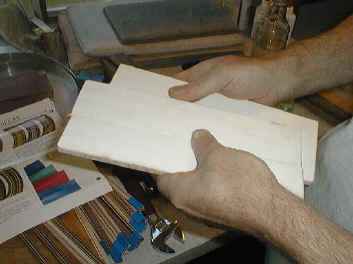
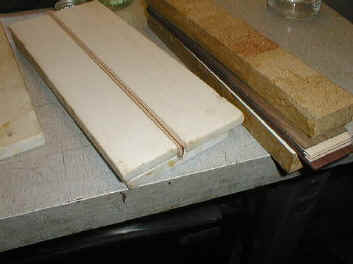
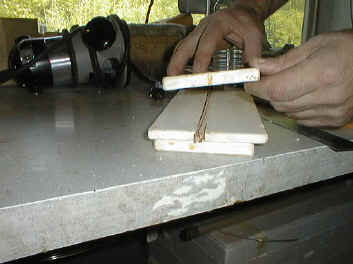
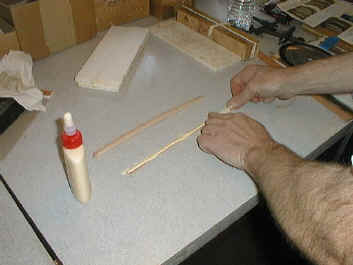
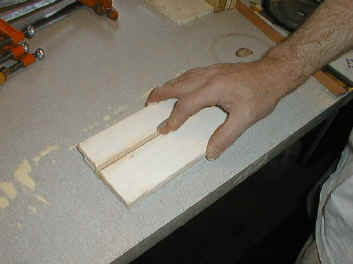
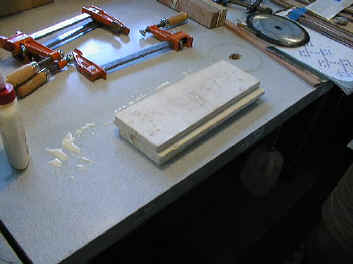
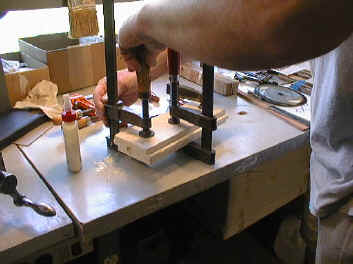
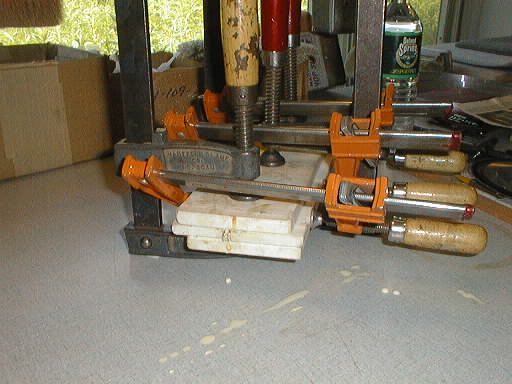
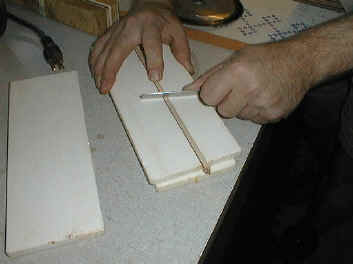
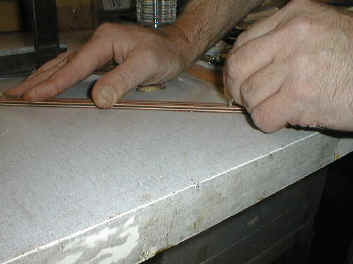
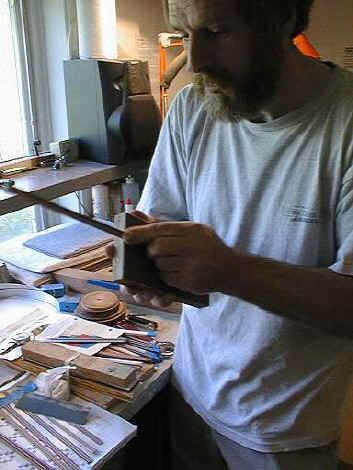
Proceed to slicing the tiles
Assembling the rosette columns into logs
 |
Alan relies on these small slabs of Corian, a plastic counter-top material available in lumber yards which can be cut on ordinary saws, to glue the sliced rosette columns together into logs. The special advantage of this material is that it is exceedingly flat, exceedingly hard and quite impervious to water-soluble glues. Cleanup of Corian surfaces with water is extremely easy. |
 |
Four Corian slabs are used, a floor slab, two side-slabs which contain the ordered columns between them... |
 |
...and a top slab. Needless to say, the height of the columns must be carefully matched to the thickness of the side-slabs. Since Alan has scrupulously tapered each individual column, the contact edge of the side-slabs were also accurately angled to accept.the tapered sides of the log. If you're doing the simpler, non-tapered columns, the side slab edge walls should, of course be vertical. |
 |
Each column is laid flat and wetted (not flooded) with a moderate, film of glue, and laid on top of its partner in the log. |
 |
The glued columns are placed between the Corian slabs. All care must be taken that the columns are oriented and ordered properly. All the elements are manipulated until they are flush and aligned. |
 |
The glued-up columns and side-slabs are placed in between the top and floor slabs. |
 |
First clamp the top and floor slabs firmly but not tightly. |
 |
Then apply clamps across the side-slabs firmly, but not tightly. Then tighten all the clamps incrementally until the entire array is quite tight. |
 |
After an hour, unclamp, and begin the cleanup process. The log top is most easily cleaned using a scraper blade in the way shown. Take care not to dig into the Corian slabs. |
 |
The glued-up log is removed from the slabs and the sides of the log are then scraped clean with a small edge tool. If the log has been prepared with a square, rather than a tapered cross-section, now is the time to taper the appropriate edges of the log. This can be done by hand or on the table saw. For an invisible seam between the tiles, care must be taken that the edges of the log are tapered to the correct angle for the given design. |
 |
Alan Chapman cleans up the edges on the log on a
flat piece of wood faced with 100-grit garnet sandpaper. He needn't taper the edges of the
log because he already tapered each individual column in the log.
Proceed to slicing the tiles |